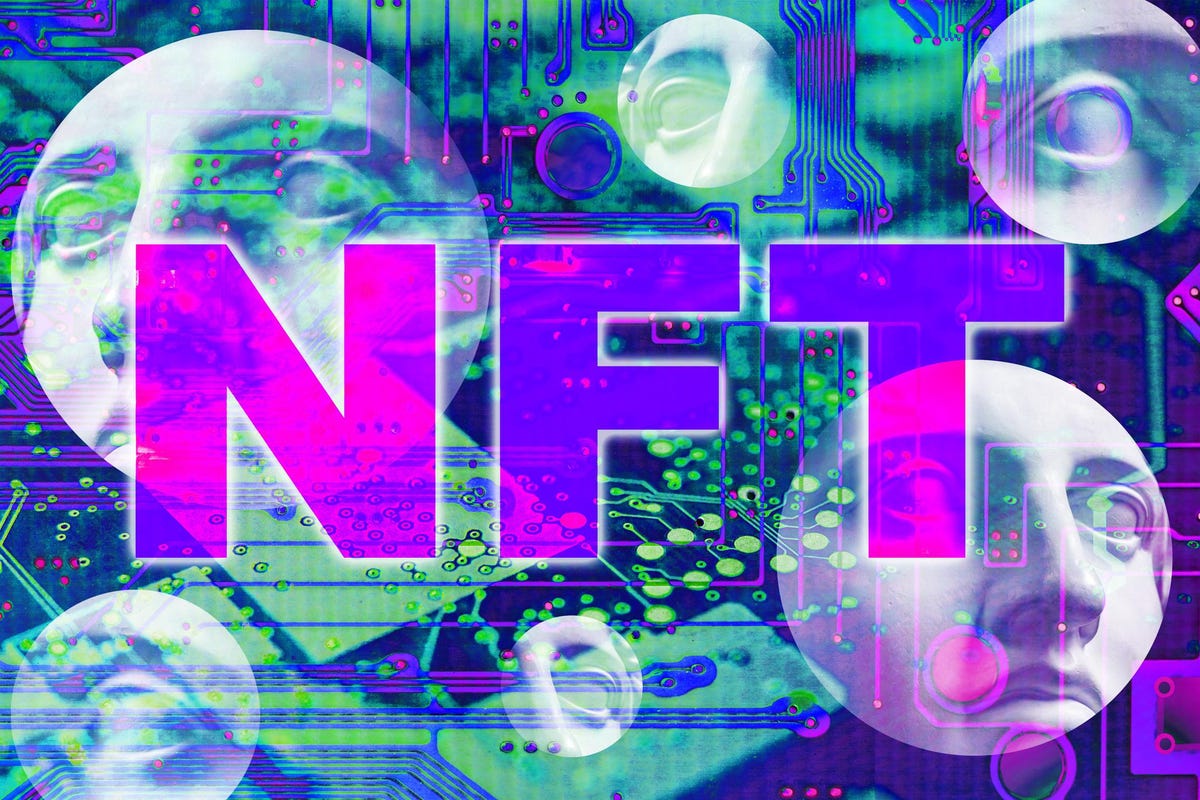NFT digital goods, also known as non-fungible tokens, are a new type of digital asset that has recently exploded in popularity. NFTs represent unique items, like artwork or collectibles, in the form of a token on blockchain technology. They allow users to purchase and trade digital assets securely and conveniently with complete ownership rights over the asset.
Definition of NFT Digital Goods
Non-fungible tokens (NFTs) are unique cryptographic tokens that are used to represent and prove ownership of a particular asset. Unlike other cryptocurrencies such as Bitcoin or Ethereum which have no underlying value or utility beyond their exchange rate, each NFT is associated with an individual item or piece of art that is stored on the blockchain ledger. This ensures that each token is distinct from any other token issued for the same item – meaning it can be treated like a physical good even though it exists entirely within the digital realm. Additionally, because they exist on blockchain technology they cannot be duplicated or altered in any way making them secure investments with trustless ownership records maintained on the public ledger.
Click here – Empower Your Home with Solar Panels
Overview of Benefits of NFT Digital Goods
The benefits of issuing and trading digital goods via NFTs go far beyond just providing security. How are NFTs transforming digital goods? By imprinting items with a unique digital fingerprint, NFTs are transforming how digital ownership is viewed and managed.
Advantages
- Enhanced Security and Ownership Rights
- Increased Marketability and Accessibility
- Decentralized Marketplace for Trading NFTs
The emergence of non-fungible tokens (NFTs) has revolutionized the global digital asset market. NFTs are digital assets that are unique and cannot be interchanged with other assets. They provide a number of advantages, such as enhanced security and ownership rights, increased marketability and accessibility, and a decentralized marketplace for trading them.
Enhanced Security & Ownership Rights
One of the greatest benefits of NFTs is the level of security they offer to owners. When compared to traditional digital assets such as cryptocurrencies, which can be counterfeited or stolen due to their lack of uniqueness, NFTs are invulnerable as each token is completely unique and indivisible from its owner. As a result, any attempts at fraud or theft would simply fail due to the immutable nature of these tokens. Furthermore, since each token is linked exclusively to its owner through blockchain technology, owners have complete control over their asset’s movements at all times without having to rely on third-party services or middlemen. This significantly reduces costs associated with ownership while also providing peace-of-mind for buyers in knowing that their asset will remain safe regardless of what happens in the global markets.
Disadvantages
With the rise of cryptocurrencies and blockchain technology, more people are starting to invest in this new asset class. But what many investors don’t realize is that there are some significant disadvantages associated with investing in cryptocurrencies. In this article, we’ll take a look at two of the most prominent disadvantages: costly transactions and fees, and lack of regulation and standardization in the market.
-
Costly Transactions and Fees
One major downside to investing in cryptocurrencies is that they usually have high transaction fees. These fees can add up quickly if you’re making several trades or moving money around frequently. Even though these transaction fees can be mitigated by using certain wallets or exchanges, they still tend to be higher than what you would pay for traditional financial services such as debit/credit card payments or bank transfers. Additionally, some platforms may also charge additional fees for things like withdrawal limits or other services that may not be necessary for all users.
Click here – How is tungsten wire made?
-
Lack of Regulation and Standardization in the Market
Another downside to investing in cryptocurrencies is that there are very few regulations governing their use at the moment because the industry is still relatively new. This means that it can be difficult to trust certain platforms offering cryptocurrency trading services since there aren’t any guarantees.
Conclusion
NFT Digital Goods are revolutionizing the way digital assets are bought, sold, and collected. Through their unique use of blockchain technology and smart contracts, NFTs have created a whole new market for digital goods that can be securely bought and sold with confidence. With more people getting involved in the space every day, NFTs are set to become an important part of the future of digital commerce.

